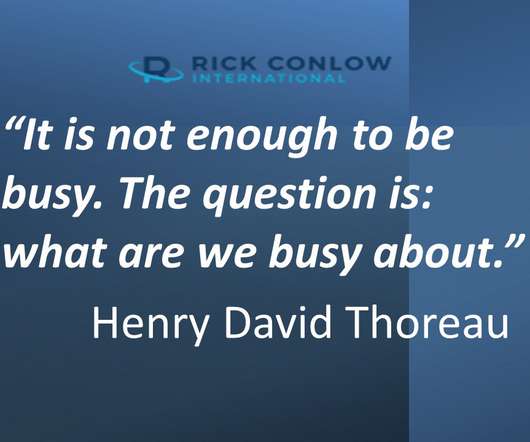Mastering the Art of Leading Remote Work Teams
Rick Conlow
JUNE 19, 2023
Bottom-line, companies with people-first culture led by Servant Leadership principles outperform their competitors. However, Amazon’s Mechanical Turk survey found that the average remote worker spent nine hours a week doing other tasks during work schedules besides working. Included training in team meetings.


















Let's personalize your content